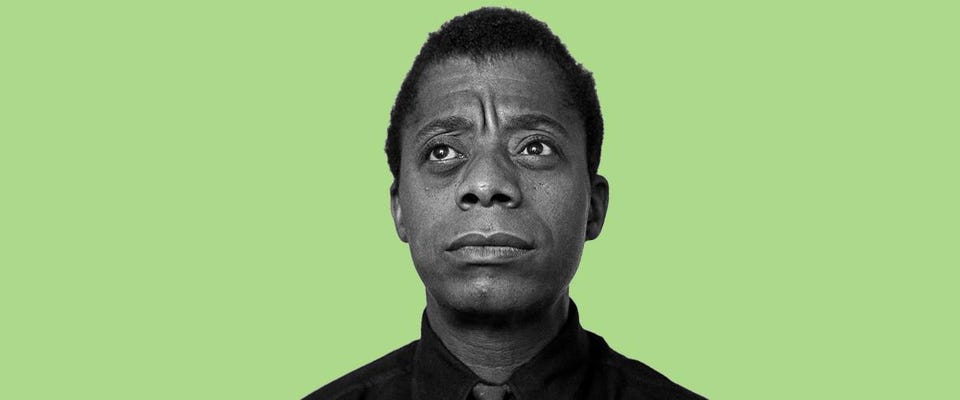Virtue Signaling On Race Relations Only Hurts The Cause


James Baldwin
LitHub
The Free Press, a Substack newsletter started last year by the former New York Times columnist (and gadfly) Bari Weiss, included the following entry in its most recent edition of “TGIF”, a satirical weekly news wrap-up. The story began with a tongue-in-cheek entreaty to “please stop making TGIF so easy” (meaning please stop providing such low-hanging fruit for good satire):
This month the state of Michigan’s Department of Health and Human Services decided to ban the term “field worker” (as did the University of Southern California). The term does not have a racist history at all, but apparently the word “field” is triggering. “Phrases such as ‘going into the field’ or ‘field work’ may have connotations for descendants of slavery and immigrant workers that are not benign,” USC administrators wrote.
This movement is so removed from the reality of what actually happens in rural America that it literally believes the word “field” is racist. People do realize that food is grown in fields, right? Baseball is played there and I’m pretty sure it’s something you can do with questions too. You have to be many generations deep into city-living for the word “field” to make you think of white supremacy instead of something like garlic.
Full disclosure: I am a former professor at USC’s Marshall School of Business and have long had issues with their constant barrage of scandals and coverups of same. Such incidents cause both a lack of trust in the institution and an environment of deep cynicism that render initiatives such as USC’s vaunted (and vaguely Orwellian) “Culture Journey” and DEI project very difficult to implement. In fact, USC’s deeply flawed institutional culture and its knee-jerk instinct to sweep real problems and scandals under the rug are a large part of the reason I resigned my faculty position last month despite having had such wonderful students and terrific colleagues whom I will truly miss.
A big part of USC’s problem—and one that is directly tied to its culture of scandal and corruption— is precisely the type of performative “virtue signaling” typified by the cringeworthy, “Onion”-style example above. When you are purportedly trying to say or do something serious while inadvertently creating material for a Saturday Night Live skit (or, famously, for Trevor Noah’s nightly takedown), you know you are losing the argument.
As an expert in business ethics who has spent the past 2+ years researching—yes, doing “field” work—in the area of diversity, equity and inclusion (DEI), I have learned, especially in the wake of George Floyd’s murder, that talk is truly cheap. Despite their big-dollar promises, many corporations have merely practiced the same kind of empty virtue signaling in which Michigan’s Department of Health and Human Services and USC’s School of Social Work participated. And far from being an “innocent” or neutral practice, this kind of cheap talk is dangerous and counter-productive because it obscures the real, hard work of racial reckoning and creating equity of opportunity. As an author at Religion News Service recently put it, “virtue signaling is far less demanding, and far less constructive, than virtue itself.” In other words, it is a lazy proxy for actual, real virtue.
The first, and still most famous advocate for virtue ethics was the ancient Greek philosopher Aristotle. He argued that a virtuous person must actually practice acts of virtue and do the arduous work of becoming virtuous: “Men become builders by building houses, and harpists by playing the harp. Similarly, we become just by the practice of just actions, self-controlled by exercising self-control, and courageous by performing acts of courage.” Aristotle would have surely been a staunch critic of today’s depressing trend toward virtue signaling had he, God forbid, been alive to see it.
During a 1969 discussion on race, a White South African audience member asked the great Black American intellectual James Baldwin the following provocative question: “Is there any place for the white liberal in the Black Power movement?” Above loud jeers from the audience, Baldwin proceeded to expound at length on the dangerous “innocence” of the white liberal. He explained that as a Black man, he had a natural advantage because he was compelled to doubt his own history, to examine his own history, to create his own history and “to question everything”. The white liberal, on the other hand, is in “precisely the opposite position.” He is
“. . . unwilling as well as unable to examine the forces which have brought him to where he is, which have created him in fact. Quite apart from his own attitudes, aspirations or morality whatever they may be, he is nevertheless, whether he likes it, . . . a part of the people who at this very hour are jailing some Black boy in Mississippi, . . . are whipping some Black African slave. I hate to use this word, but in a sense, that innocence can be, in crucial moments, a very grave danger.”
Today’s virtue signaling is exactly the kind of dangerous innocence that belies the kind of staggering lack of self-examination which Baldwin warned us about over a half-century ago. On this day, which would have been Martin Luther King Jr.’s 94th birthday, I hope that institutions and individuals alike will muster the courage to truly examine our actions and do better to practice— and not just signal—our virtue.
